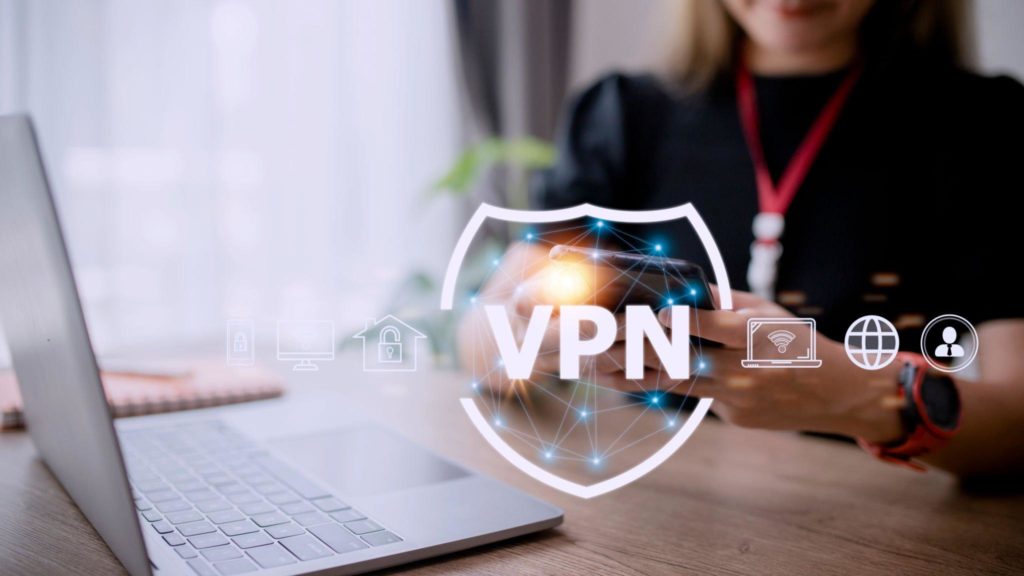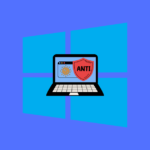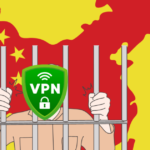The use of virtual private networks, commonly known as VPNs, has surged in popularity lately as individuals aim to safeguard their internet privacy and security. By encrypting a user’s web traffic and channeling it through a server in a different country, VPNs make it challenging for others to monitor their online behavior or figure out who they are. Nevertheless, it’s important to recognize that VPNs vary in quality, and certain ones maintain records of users’ activities, which negates the original intent of employing a VPN.
A VPN that doesn’t use logs (also known as a “no-log VPN”), keeps zero record of its users’ online activity. This means that even if another party gained access to the VPN’s servers, they would not be able to find any information about what users were doing online. VPN without logs are often preferred by anyone who wants to ensure their online privacy and security, as they offer an additional layer of protection against surveillance and tracking by governments, ISPs, and other third parties.
Table of Contents
What is a VPN without logs?
A no-log VPN does not track user activity logs. This means the VPN provider does not collect or store any information about the user’s online activities, including their browsing history, search queries, downloads, or any other personal information that could be used to identify them.
The primary purpose and function of a no-log VPN is to provide maximum privacy and security to its users. By not collecting any user data, a no-log VPN ensures that no such information can be shared with third parties — including government agencies, advertisers, or hackers. This is particularly important for people who are concerned about their online privacy and want to protect personal and sensitive information from being exposed.
Please note: not all no-log VPNs are created equal. Some VPN providers claim to have a no-logs policy but, in reality, they still could collect and store some user data. Therefore, it is important to research and choose a reputable VPN provider that has a proven track record of providing a true no-log VPN service.

Why are no-log VPNs useful?
A VPN without logs protects the user’s online privacy. When a user connects to the internet, their ISP assigns them an IP address. This IP address can be used to track the user’s online activity. Working with a VPN that doesn’t keep logs, the user’s online activity is not recorded, and their IP address stays hidden. This makes it harder for third parties to track them online.
Metadata is another significant consideration when it comes to online privacy. Metadata is the information that is generated when a user goes online, such as the time, date, and duration of the connection, along with the websites visited. A VPN without logs ensures that this metadata is not recorded, adding another layer of protection to the user’s online privacy.
How does a no-log VPN work??
Operating a no-log VPN entails technical and policy measures to ensure that user activities are not recorded. Here’s a technical breakdown:
1. System configuration:
- Disabling logging services: On the server side, logging services and features can be disabled. For instance, in Linux (on which many VPN servers operate), syslog or rsyslog services can be configured to retain no logs.
- In-memory file systems: Instead of writing temporary data to disk (which can be recovered later), a VPN can use RAM-based file systems (like
tmpfsin Linux). Data stored in RAM is volatile, meaning it would be erased on system restart or shutdown.
2. Data minimization:
- Limiting data collection: The less data a VPN server needs to process, the less there is, potentially, to log. By not collecting unnecessary data in the first place, there’s a reduced risk of inadvertent logging.
3. Distributed architecture:
- Multi-hop VPNs: Some providers route traffic through multiple servers in different locations. This further obfuscates the origin and destination of user data, and even if one server were compromised, it would not provide a complete picture of user activity.
4. Wiping data:
- Even if temporary data is created, automated scripts can be employed to periodically wipe any data stored on the VPN servers.
5. External audits:
- To instill confidence in their no-logs claims, some VPN providers undergo third-party audits, which evaluate the provider’s infrastructure and practices to confirm they’re not logging user data.
6. Legal and policy framework:
- Jurisdiction choice: VPN providers might base their operations in countries with strong privacy laws, or countries that aren’t part of international surveillance alliances. This way, they’re less likely to be compelled to retain user data.
- Clear terms of service: A transparent policy is crucial, one that clearly states the provider’s commitment to not logging user activity. While this isn’t a “technical” measure, it is a binding agreement among the provider and its users.
7. Infrastructure management:
- Server seizure protection: Using disk encryption and other hardening techniques ensures that even if a server is physically seized, the data on it remains inaccessible.
8. DNS requests:
- DNS requests are handled in house, without logging, to ensure that user website lookups aren’t tracked by third-party DNS providers.
What are the benefits of using a no-log VPN??
A VPN provider that records no user logs or activities conveys real benefits to its users. Here are some of the benefits of using a VPN without logs:
Anonymity
Keeping a user’s identity hidden is one of the main benefits of using a VPN without logs. When a user connects to a no-log VPN, their online activities are not tracked or monitored; they remain anonymous and confidential. This is essential any user who cares about their own online privacy.
Security
Using a no-log VPN also keeps users safer. A VPN without logs encrypts the user’s internet traffic, making it harder for hackers, ISPs, or government agencies to intercept or access them. This adds a deeper layer of security to any user’s online activities.
Leak protection
A no-log VPN also keeps user data out of the hands of third parties by providing leak protection. A user’s IP address and location are kept confidential and are not leaked to third parties, helping to ensure that any user’s online activities are kept private and secure.

What are the best no-log VPNs?
When it comes to considering VPN service, privacy and security are two paramount factors. Choosing a VPN that doesn’t allow logs is one way to better ensure that users’ online activity is kept private. In this section, we will check out some of the top no-log VPNs available in 2023.
ExpressVPN
ExpressVPN is a popular choice for anyone looking for a VPN that doesn’t keep logs. The service is based in the British Virgin Islands, which has no laws mandating data retention. ExpressVPN reportedly has been audited by multiple sources to confirm its no-logs policy. It also offers a range of security features, including DNS leak protection and a kill switch. It saves data on RAM instead of hard drives, and its servers frequently wipe data.
NordVPN
NordVPN is another top VPN provider that has a strict no-logs policy. Based in Panama, which has no data retention laws, the company has been independently audited by PricewaterhouseCoopers to confirm its no-logs policy. NordVPN also offers a range of security features, including WireGuard protocol and a kill switch.
Surfshark
Surfshark_VPN is a newer VPN provider that has quickly gained popularity due to its no-logs policy and affordable pricing. The service is based in the British Virgin Islands, which has no data-retention laws, and has been audited by Cure53 to confirm its no-logs policy. Surfshark also offers a range of security features, including DNS leak protection and a kill switch.
IPVanish
IPVanish is a popular domestic VPN provider that has a strict no-logs policy. The company is based in the United States (which does have data-retention laws), but it has been audited by Deloitte to confirm its no-logs policy. IPVanish also offers a range of security features, including WireGuard protocol and a kill switch.
VyprVPN
VyprVPN is a VPN provider that has a strict no-logs policy. The company is based in Switzerland (which has strong and recently revised data-protection laws), and has been audited by Leviathan Security to confirm its no-logs policy. VyprVPN also offers a range of security features, including WireGuard protocol and a kill switch.
CyberGhost
CyberGhost is a VPN provider that has a strict no-logs policy. The company is based in Romania, which has no data-retention laws, and has been audited by QSCert to confirm its no-logs policy. CyberGhost also offers a range of security features, including DNS leak protection and a kill switch.
To conclude: Many VPN providers offer a no-logs policy, ensuring that users’ online activity is kept private. When choosing a VPN, it is important to consider the provider’s security features, such as DNS leak protection and a kill switch, as well as any independent audits conducted that confirm the VPN provider’s no-logs policy.
- Best Privacy Browser for Android: 4 Top Picks for Secure Browsing - May 6, 2024
- VPN without logs: Why it matters and how to find one - May 6, 2024
- 11 Best Data-Mining Software Tools - May 6, 2024









